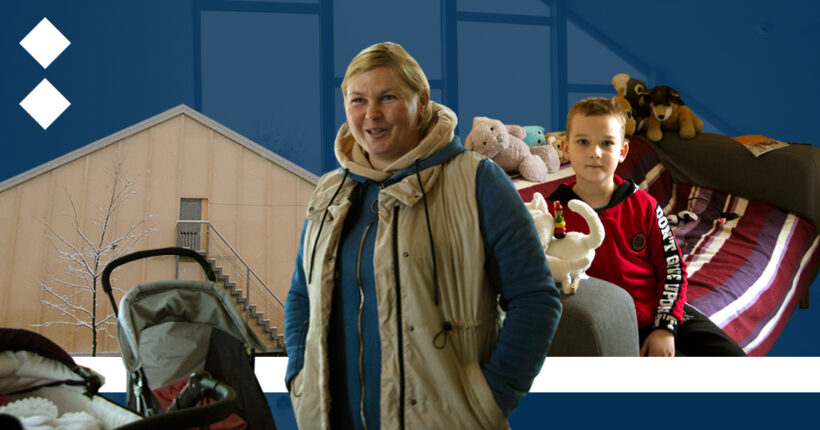
What is the problem?
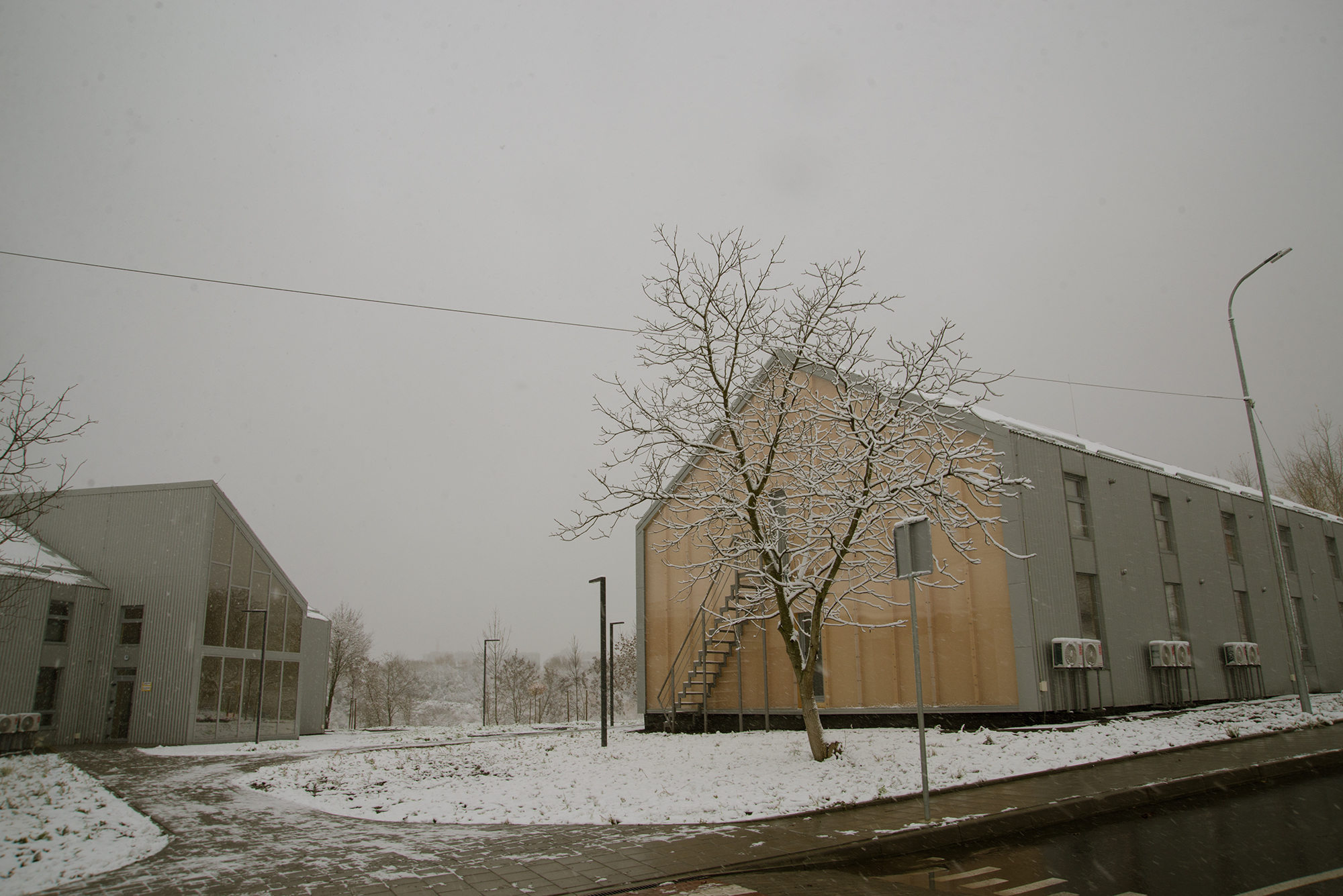
"Unbreakable Mothers" Center
Since the beginning of the full-scale Russian invasion of Ukraine, the number of internally displaced persons has steadily increased. An influx of people rushed from the eastern regions of Ukraine to its west. Most of them are women, including those who are pregnant and with children. The International Organization for Migration (IOM) estimates that households with pregnant or breastfeeding women accounted for 11% of internally displaced persons (IDPs) in the first three months of the full-scale invasion. This is a particularly vulnerable population group. These women need proper conditions and peace, but war is anathema to both.
Lviv has become one of the largest hub cities for IDPs because a wave of war-frightened people rushed there. To accommodate, calm, and warm Ukrainians from the east, quick and effective solutions are needed.
What is the solution?
In July 2022, the mother and child center Unbreakable Mothers was created for pregnant displaced women who fled the war to Lviv.
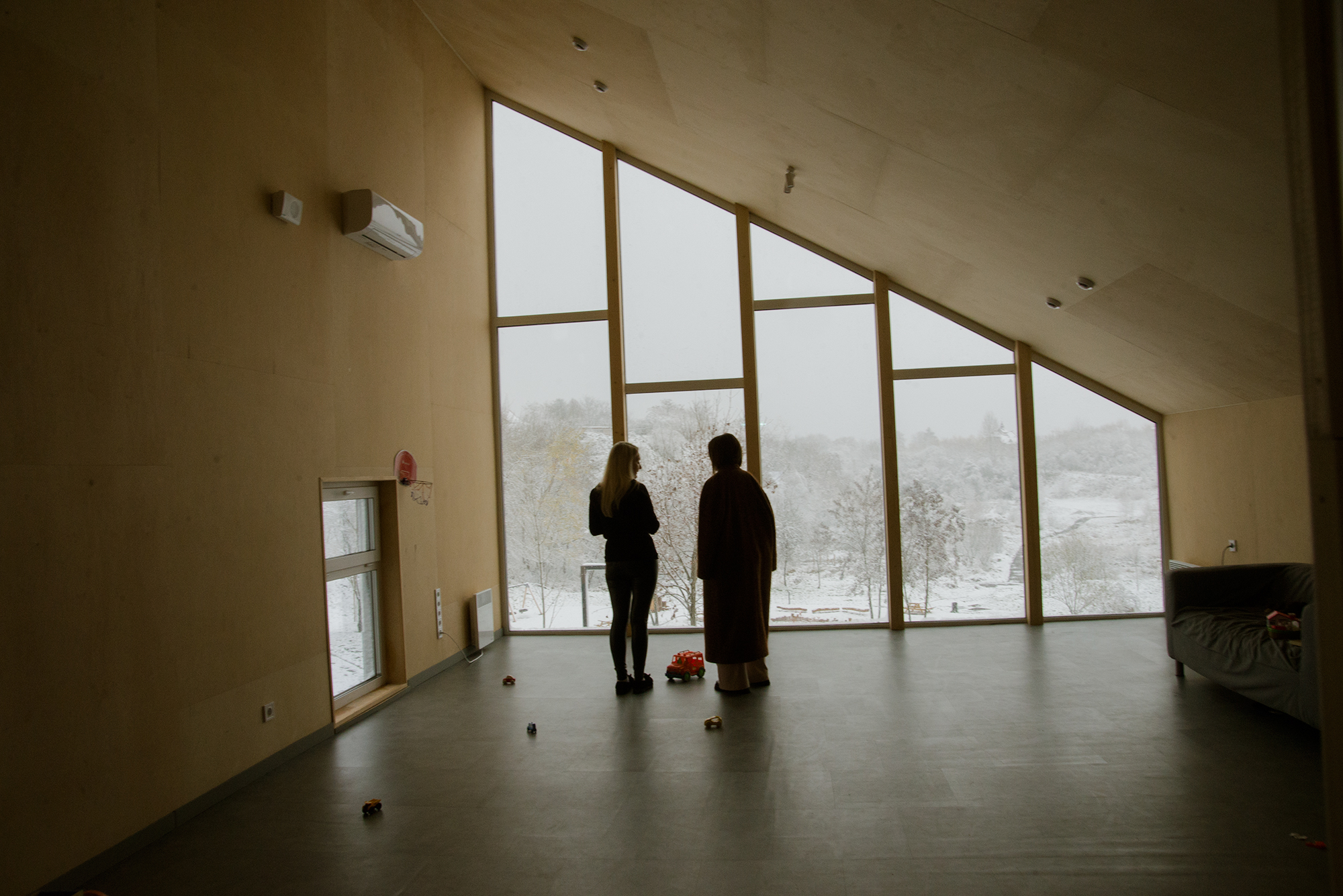
The center has a playroom.
It was built in record time with the support of the Red Cross, taking the experience of a similar structure in the USA as a basis. The housing format is entirely different here than in modular towns for IDPs. The houses are equipped with all the necessary conditions for comfortable temporary accommodation for pregnant women and women with children. There are kitchens, laundry rooms, playrooms, dining rooms, boiler rooms, and recreation rooms.
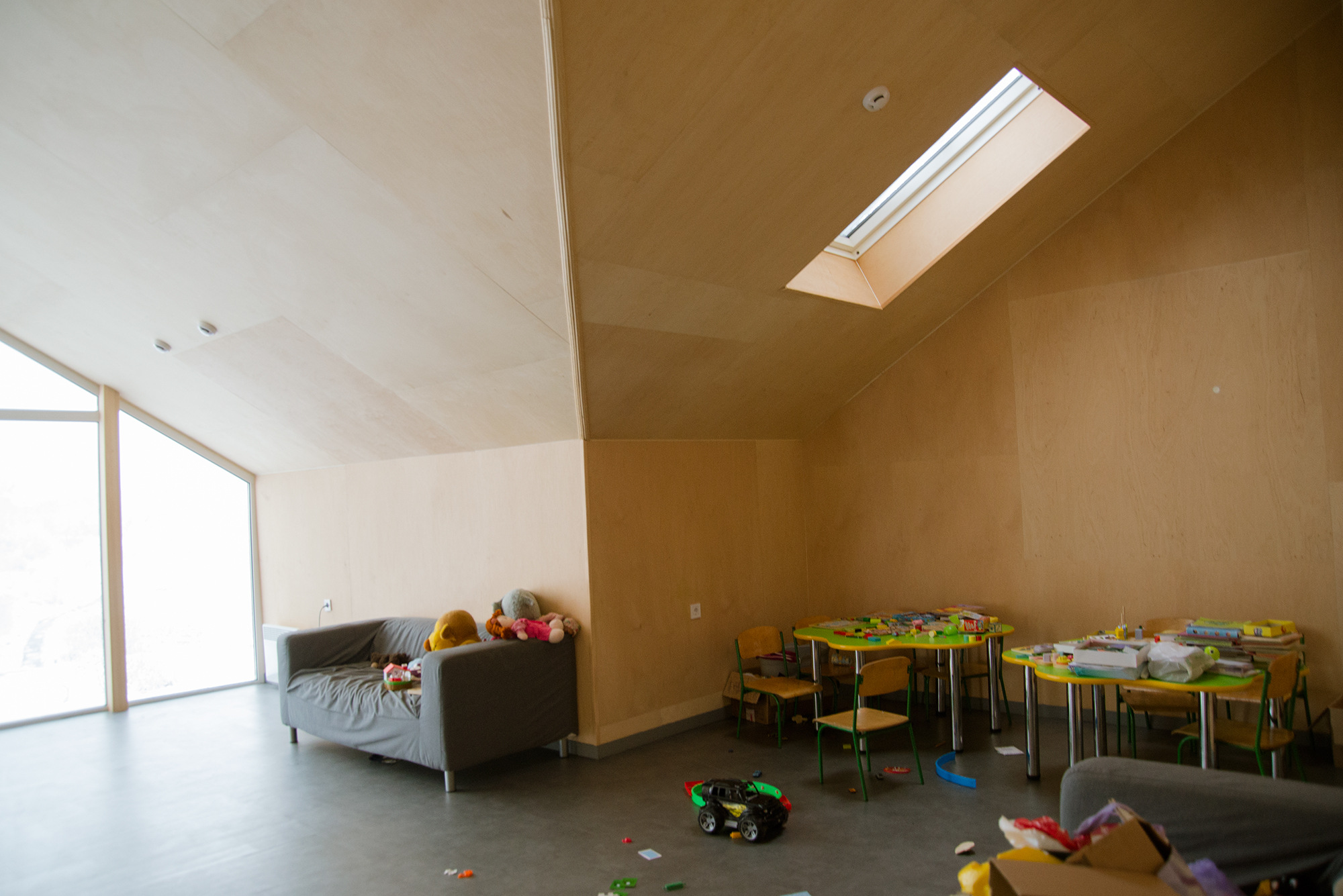
Center's playrooms provide space and toys for children to enjoy themselves.
Up to 112 people can live here at the same time. There are children's playgrounds and observation decks, a lake, and walkways near the houses. The territory of 1,300 square meters is only for resettled women, and men cannot stay there.
How does it work?
Unbreakable Mothers began to work in August 2022. Both houses were quickly filled with mothers who had to flee with their children from the war from their hometowns, cities, and villages.
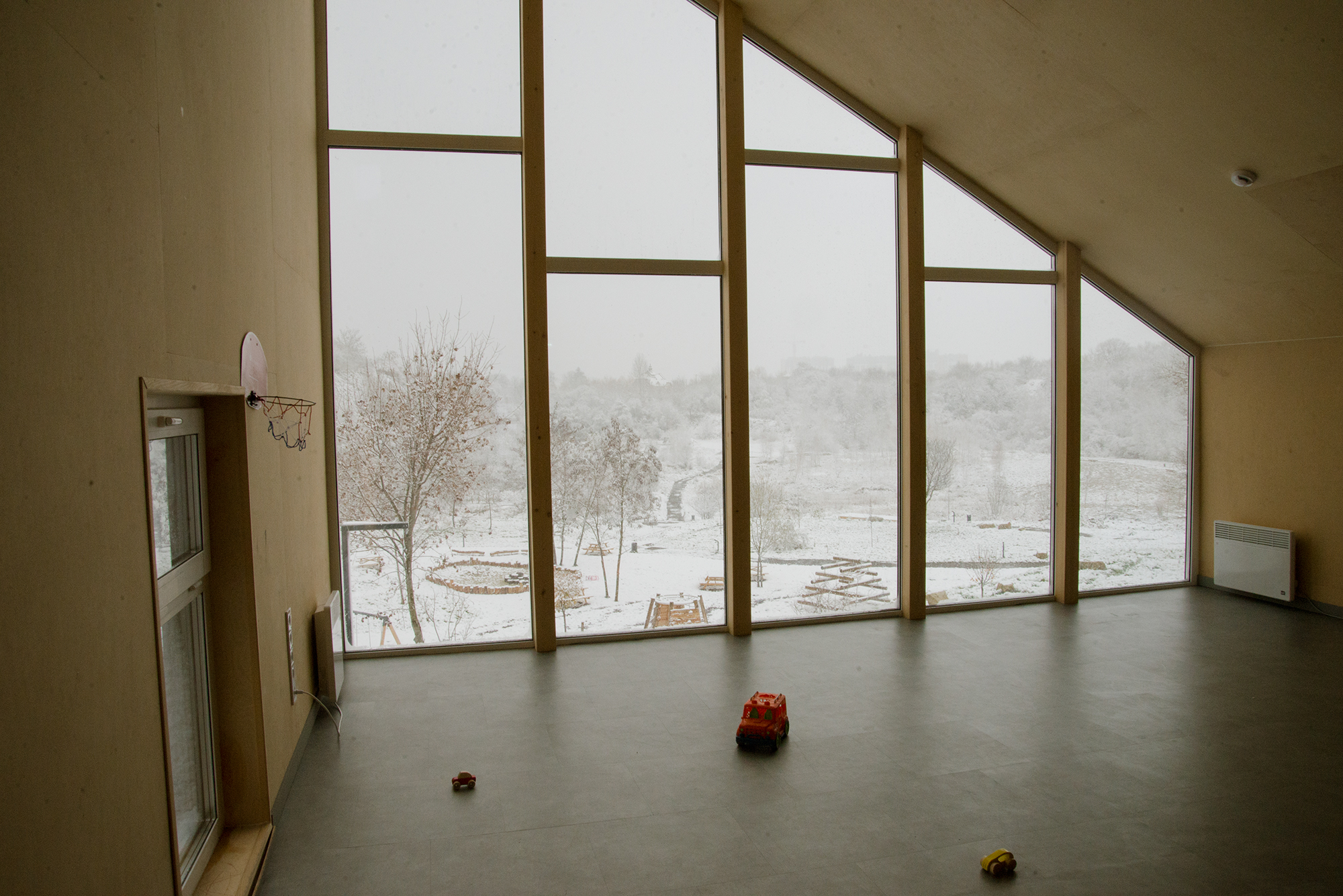
One of the playrooms has a recreation-area view.
"We accommodate pregnant women or women with newborn children up to a year old," says Lilia Kilchytska, head of the Unbreakable Mothers mother and child service. "If there are other family members: older children or grandmother, sister, etc., they can stay here. Only men cannot settle in our house. Before settling in, each signs an individual contract, which defines the period of their stay in our center."
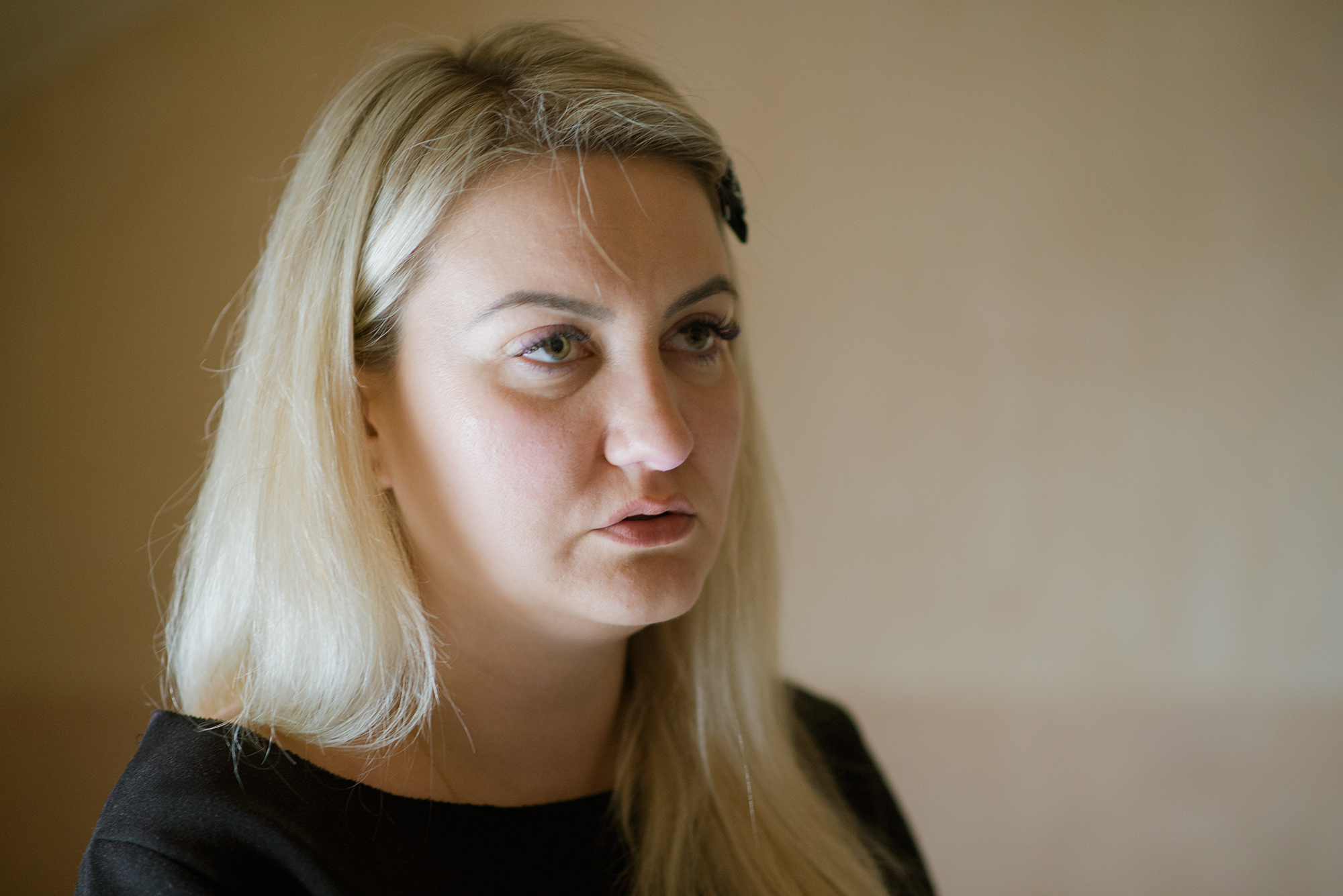
Liliya Kilchytska is the head of the mother and child service Unbreakable Mothers
The organizers provide social services: help to make the documents or their restoration, psychological assistance, art therapy, etc. The center has all the conditions for cooking: a spacious kitchen and a dining room. The women provide themselves with food. A municipal guard protects the residence 24 hours a day. There is also a nurse who can provide first aid if necessary.
"Social workers who work with children come to us every week. They engage in sculpting, drawing, and holding various interesting events. Mothers are often very busy because many have several children — and even babies. That's why we try to help them as much as possible," says Kilchytska.
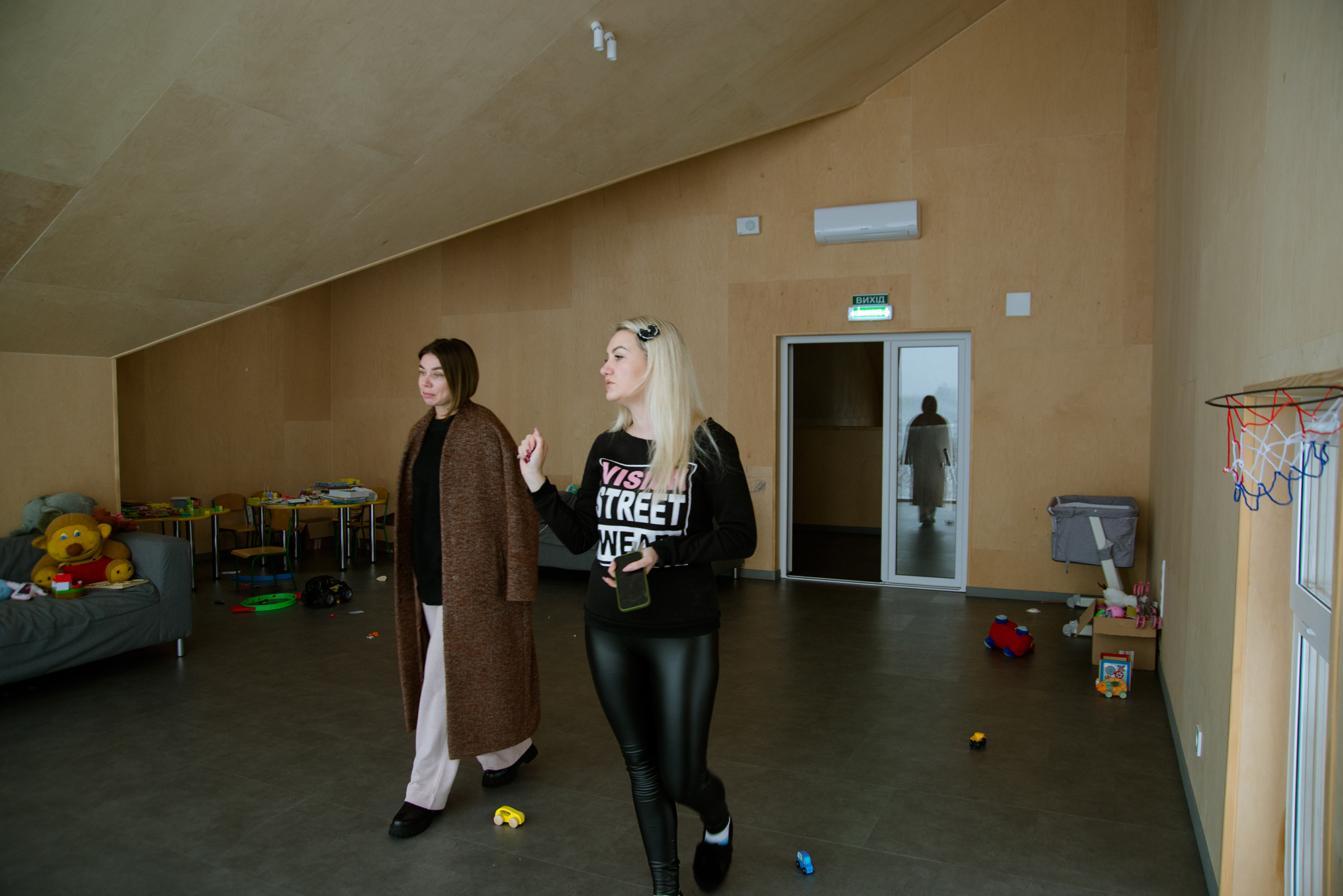
The number of residents staying at the center changes as some find new housing and others arrive.
"Now 12 mothers and 27 children live in the Center. We have families here from the territories where active hostilities occur, including Donetsk, Luhansk, Kharkiv, Zaporizhzhia, and Mykolaiv regions," Kilchytska told Rybryka.
The rules at the center are simple — everyone cleans up and is responsible for their children. Residents must return home by curfew time. Of course, they can go visit somewhere with their children for a week or two. In this case, they must notify the administration. Those who want to go for a more extended period write a notice.
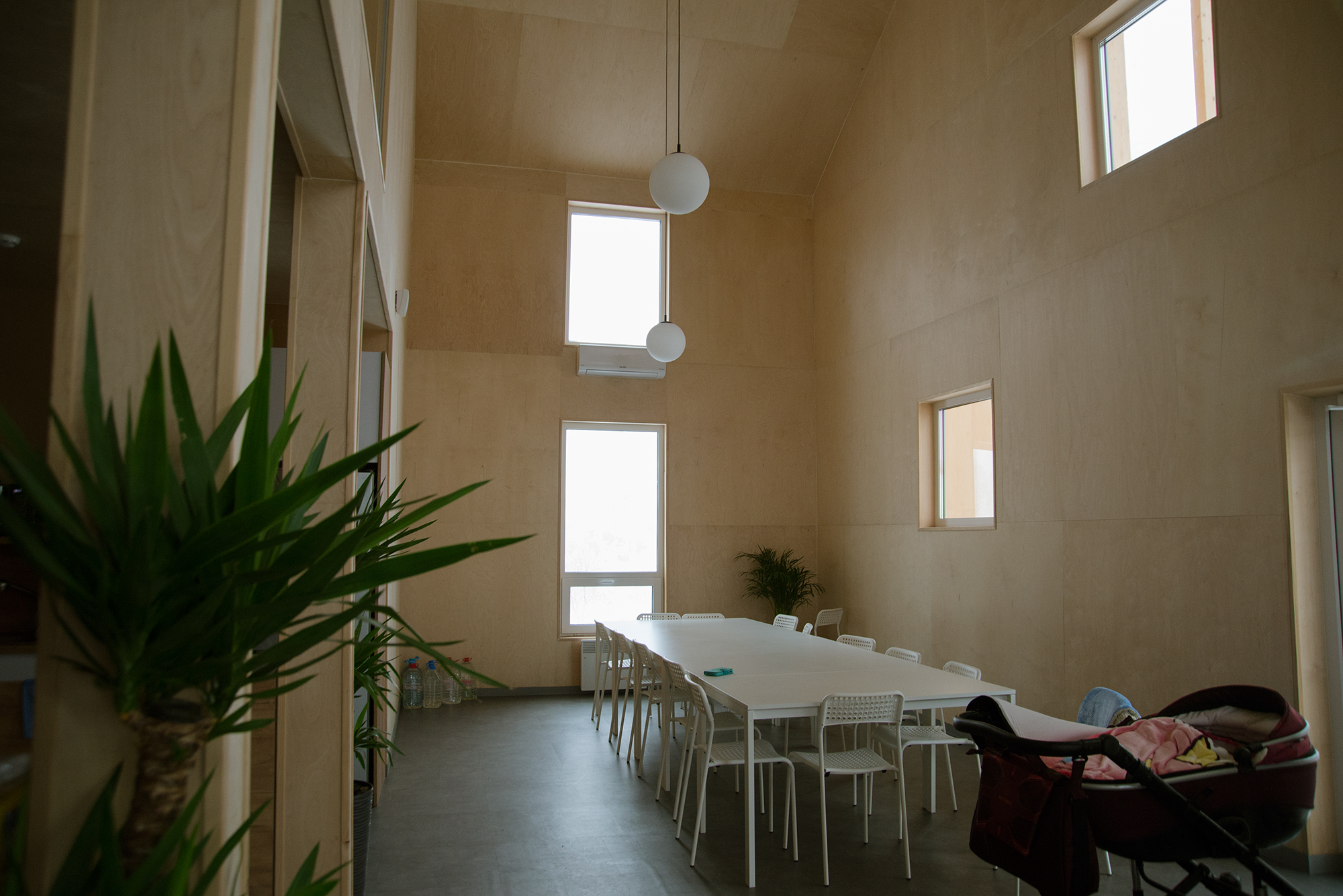
Does it really work?
Rubryka visited the center on a weekday at lunchtime. Most children are in school or kindergarten, and moms go for a walk or take their rest. The houses are unusually quiet. It's usually bustling and fun, as the playrooms and shared dining room are filled with families. Although now isn't "rush hour" at the center, Rubryka got to know the two residents.
Olha and Tetiana have been living in the Center since its opening. Once here, the women were able to relax and transition after their hellish evacuation route, living in refugee centers and giving birth far from home.
"We didn't know where we were being taken"
Olha is 32 years old. She was pregnant and was living in Lysychansk, in the Luhansk region, with her three children when the full-scale invasion began. She hardly remembers the beginning of hostilities — she was in the hospital with COVID-19. No one knew how to act. Shelling was so frequent that Olha saw no other option but to evacuate.
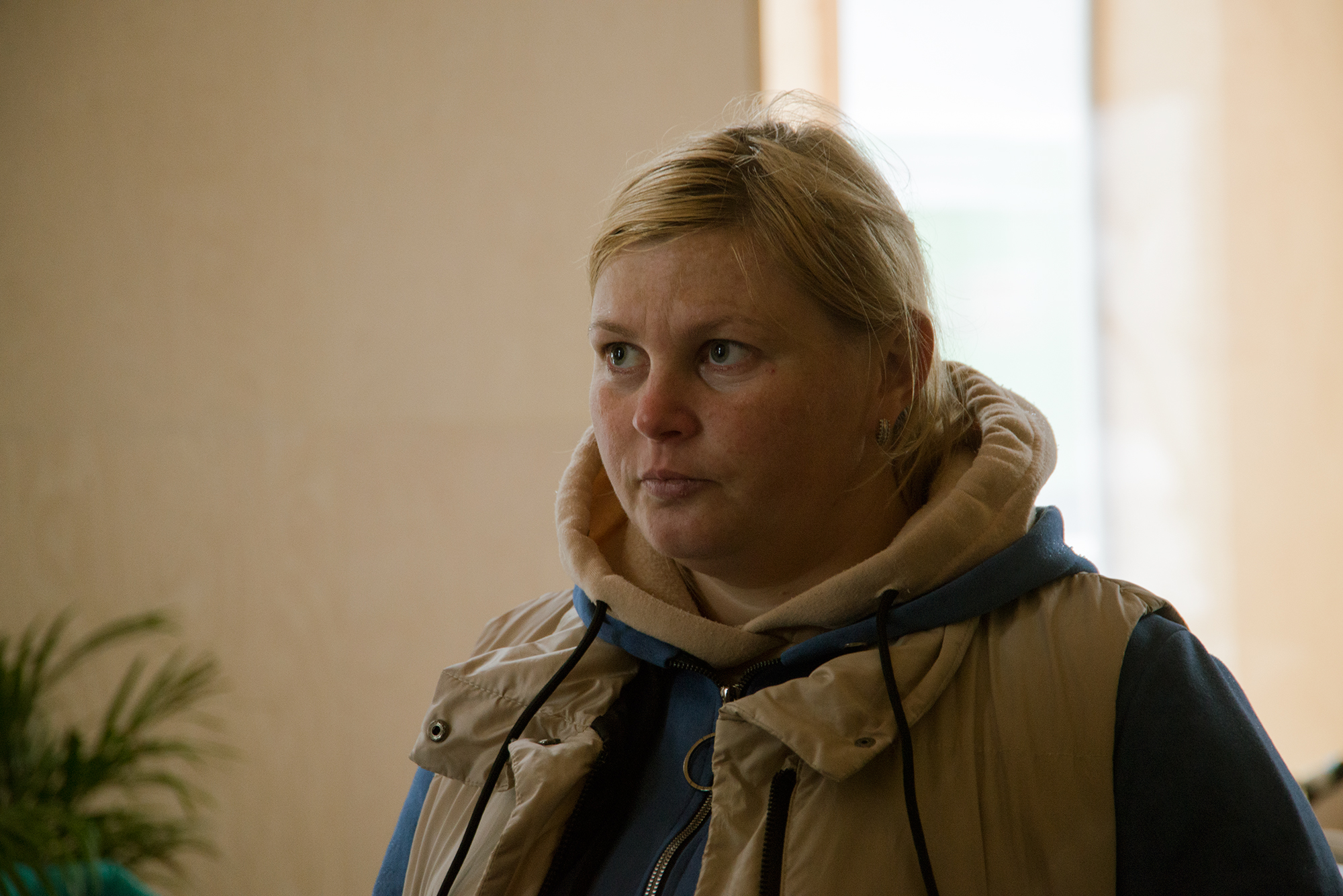
Photo: Olha Shevchenko, one of the residents of the Unbreakable Mothers Center
"We were under shelling for two weeks. There was a huge panic, and everyone was running away. Before that, we hid in the basement in the cold, without water or light. Children started to get sick. That's why we decided to get together and run away, so we left by evacuation train," Shevchenko recalls.
She gathered her children — 11-year-old Nastya, 9-year-old Maxym, and 7-year-old Oleksandr — and evacuated. At that time, Shevchenko was in her fourth month of pregnancy. In Lviv, she gave birth to a daughter, Daryna.
"We didn't know where we were being taken. We just got on the train. We took only documents and clothes — the only things we had with us in the basement. The trip was very long, several days; and at night, the train stopped, and we found out that we were in Lviv," says Shevchenko.
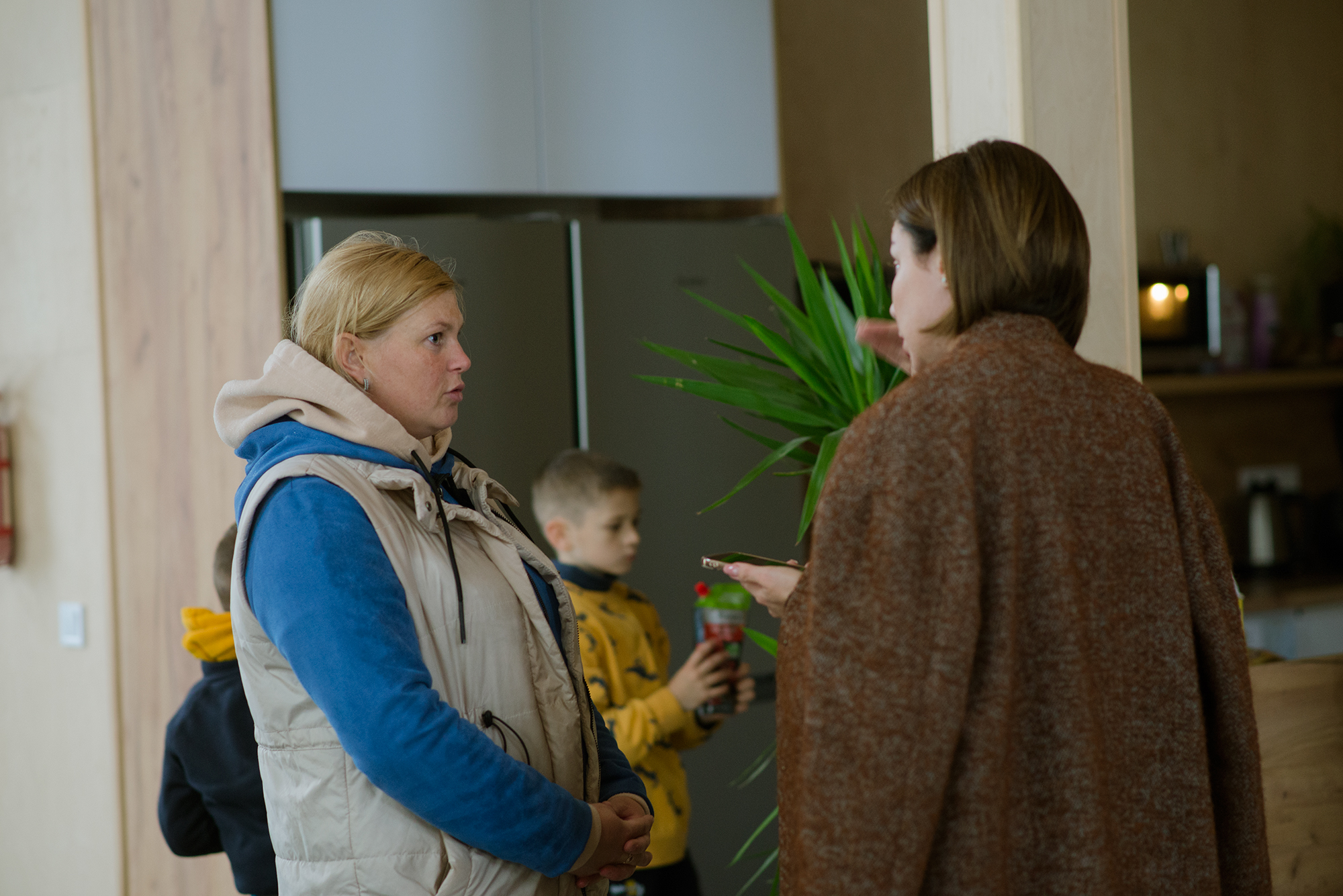
Photo: Olha Shevchenko
At first, the mother and children were placed in a dormitory. And after the birth of her daughter, the woman settled in the Unbreakable Mothers center and still lives here. Shevchenko's family has a separate room, and the children have already adapted — they have everything for comfortable living and education. After all, the older ones already go to school.
The family does not know what will happen next. Shevchenko says that she wants to return home, but the territory is currently occupied, and her children, like herself, are Ukrainians and will live among their own.
"My husband is at war, and we have nowhere to go"
Tetiana left her home with her little son in the fourth month of pregnancy in March. The territory of the Starobilsk district of the Luhansk region very quickly became dangerous, and she decided to evacuate. Tetiana and her children have lived in the Unbreakable Mothers center since the end of July 2022.
"It was very difficult to leave. We somehow got bus tickets to Dnipro, but there were such lines that it was almost unreal. We spent the night in Dnipro and then arrived in Lviv by train. My son and I were here on April 1," Tetiana recalls.
Tetiana's husband is a soldier, so it was dangerous for her to stay at home.
"There is no life there. There is an occupation. No (phone) reception, nothing. That's why we left. We were still lucky because we left that area relatively calmly. But two weeks later, the cars were already being shot at," Tetiana told Rubryka.
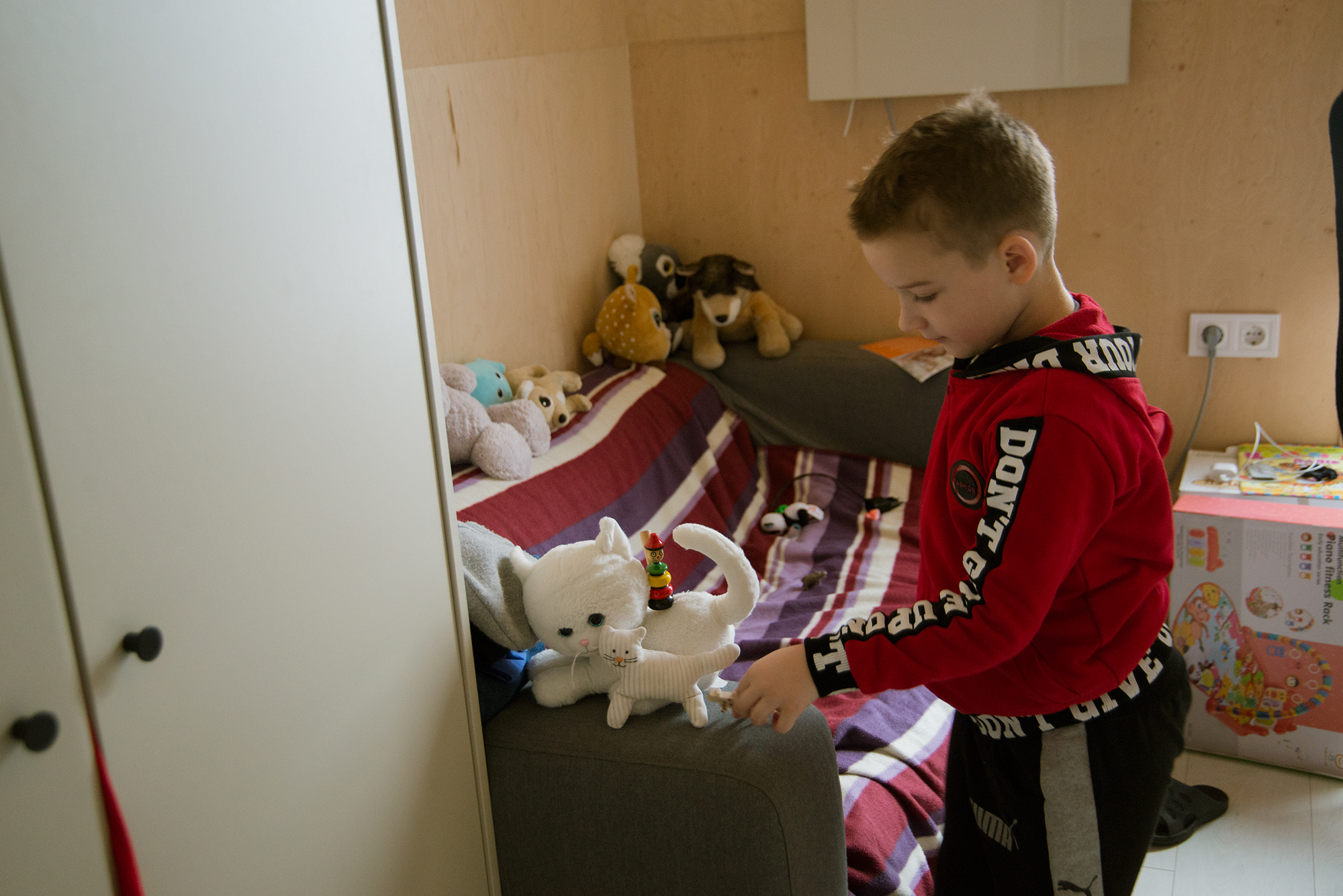
Photo: Tetiana's son is playing in the center
In Lviv, Tetiana was initially accommodated in the premises of one of the lyceums — there was an organized point for displaced persons. This is how they lived for four months while the Unbreakable Mothers center was being completed. And when the family found out about the residence, they moved, and Tetiana gave birth there.
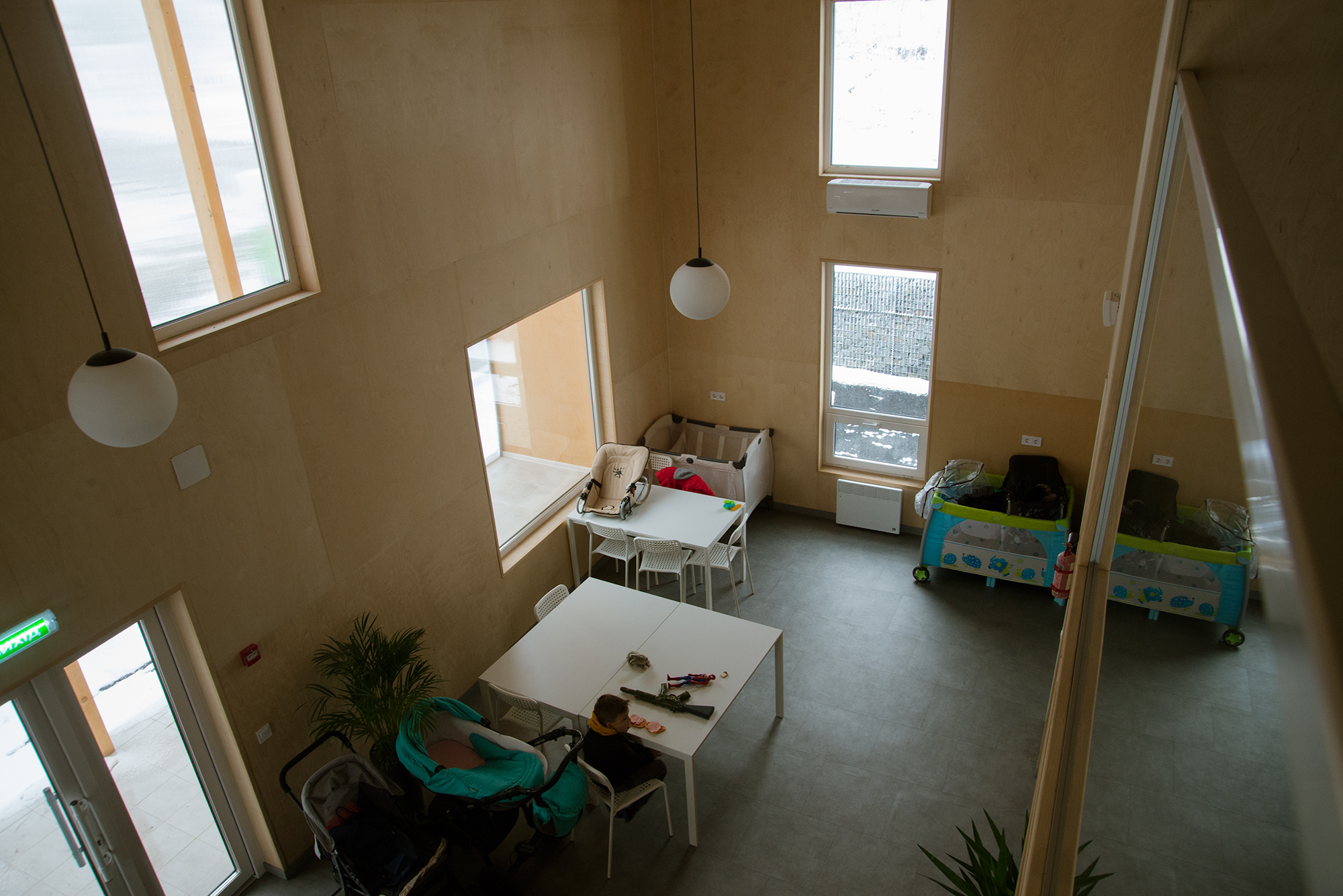
Photo: Center's common room provides space for relaxation and communication.
"As soon as I arrived, I immediately registered there to have a place to give birth. And now I feel calmer and plan to continue living here. My husband is at war, and we have nowhere to go," the Tetiana shares.
Even more useful solutions!
The mother and child center Unbreakable Mothers is one of the elements of the UNBROKEN Ukraine network, which is being created in Lviv. The goal of the project is to help Ukrainians remain indomitable. This network also includes the National Rehabilitation Center of Ukraine, developed on the basis of the First Territorial Medical Association of Lviv under the patronage of the Ministry of Health of Ukraine.
The experience of others
It may be more difficult for single mothers to get an education, find a job and housing, improve their life conditions and that of their child. Often they need help and support to achieve all that. People find non-standard solutions to support single mothers worldwide.
For example, in Indiana, in the USA, there is a program designed to provide affordable housing for mothers who are getting an education. The Anderson Scholar House provides stable housing at a reduced rent price for single mothers enrolled in college. The organization aims to provide support and guidance so that life pressures don't stop them from graduating.
And in Japan, they found a solution to several problems at once: the aging of the population, the decline in its number in rural areas, and the support of single mothers. Small towns in Japan like Hamada are recruiting single mothers in an effort to boost their declining population, and care for their aging one. They recruit single mothers by offering them jobs at the local nursing homes, paying them while they get trained, covering their moving costs, part of their rent, and offering them a used car.









